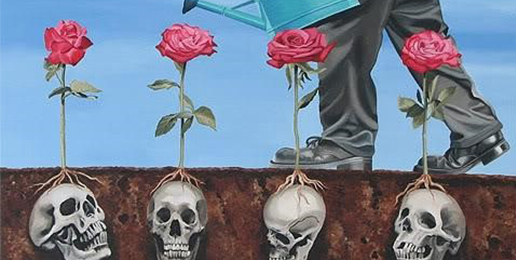Washington becomes the first state to legalize human composting
June 3, 2019
Washington state has become the first state in America to legalize human composting, or re-composition, as of Tuesday, May 21st, 2019.
This law goes into effect as early as May 1st, 2020.
For those who don’t know what human composting is, it is the act of being turned into soil after death. It is a practice somewhat similar to cremation, except for it is a lot better for the environment.
This process is where the human remains as well as wood chips, straw, and alfalfa are put into a hexagon shaped steel container and are left in there for 3-7 weeks. What happens in the container is chemical reaction where the mix of all things put into the container creates a perfect environment for microbes to be able to speed up the decomposition process and turn the remains, including bones, into soil.
To some this may sound crazy and unnecessary. To others, it is just a way to give final “thank you” to the earth.
As mentioned earlier, human composting is a lot better for the environment than cremation and and burying.
Out of all states in the country, Washington has the highest rate of cremation, at 76%. This large percentage is bad for the air quality for Washington as 1 cremation releases about 540 pounds of CO2 into the atmosphere.
The act of burying may seem like it affects the environment in a less harmful way, but it can be just as bad. The amount of wood that is put into building coffins per year is 4 million acres of forest.
Not only that, but the embalming process that some bodies are put through before burying puts more than 800,000 gallons of toxic chemicals into the earth every year. These chemicals, no matter how long it takes, will eventually end up in the underground water. This water, if ingested, could potentially poison many people, as the chemicals in embalming fluid, such as phenol and formaldehyde, can cause death if the amount consumed is significant enough.
Since human composting has no burning, the process the CO2 emissions would be none and the environmental affect of the process could only be helpful. As the soil created in the process is a perfect topsoil for gardening.
This creates a cool final memory of the person that passed away as they could have a tree or plants instead of a headstone to commemorate them.
Would you consider this option?






